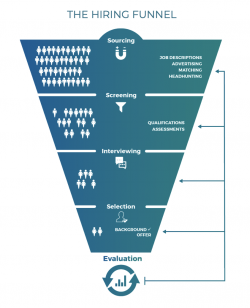Difference between revisions of "Gender bias in the Online Job Search"
From SI410
| Line 2: | Line 2: | ||
Gender bias refers to the “unfair difference” in the way that both men and women are treated <ref name=biasDefinition>Cambridge Dictionary.(n.d.). Gender Bias. In <i>Cambridge English Dictionary</i>. [https://dictionary.cambridge.org/us/dictionary/english/gender-bias https://dictionary.cambridge.org/us/dictionary/english/gender-bias]</ref>. In the context of the online job search, this refers to the advantage male job seekers have versus female job seekers. The advancement of technology and big data has led to companies recruiting and hiring potential employees through the use of big data and artificial intelligence <ref name=paulineKim>Kim, P. T. (2019). Big data and artificial intelligence: New challenges for workplace equality. University of Louisville Law Review, 57(2), 313-328.</ref>. The use of algorithms in the job search process can perpetuate existing biases which raise ethical concerns regarding opportunities for females being blocked, and how systematic gender roles are disadvantaging female job seekers. | Gender bias refers to the “unfair difference” in the way that both men and women are treated <ref name=biasDefinition>Cambridge Dictionary.(n.d.). Gender Bias. In <i>Cambridge English Dictionary</i>. [https://dictionary.cambridge.org/us/dictionary/english/gender-bias https://dictionary.cambridge.org/us/dictionary/english/gender-bias]</ref>. In the context of the online job search, this refers to the advantage male job seekers have versus female job seekers. The advancement of technology and big data has led to companies recruiting and hiring potential employees through the use of big data and artificial intelligence <ref name=paulineKim>Kim, P. T. (2019). Big data and artificial intelligence: New challenges for workplace equality. University of Louisville Law Review, 57(2), 313-328.</ref>. The use of algorithms in the job search process can perpetuate existing biases which raise ethical concerns regarding opportunities for females being blocked, and how systematic gender roles are disadvantaging female job seekers. | ||
| + | |||
| + | ==<big>Evidence of Bias</big>== | ||
| + | ===Job Recruitment Algorithms=== | ||
| + | |||
| + | ===Job Recommendation Algorithms=== | ||
| + | |||
| + | ===Algorithms Extending Human Bias=== | ||
| + | |||
| + | ==<big>Ethical Implications</big>== | ||
| + | ===Algorithms Blocking Opportunities=== | ||
| + | |||
| + | ===Traditional Gender Roles Affect Outcomes=== | ||
| + | |||
| + | ==<big>Looking Forward</big>== | ||
| + | ===Rethinking How Algorithms are Built=== | ||
| + | |||
| + | ===Transparent Algorithms=== | ||
== References == | == References == | ||
<references/> | <references/> | ||
Revision as of 12:21, 12 March 2021

There are many stages to the hiring process, and algorithms are involved in almost all of them. [1]
Gender bias refers to the “unfair difference” in the way that both men and women are treated [2]. In the context of the online job search, this refers to the advantage male job seekers have versus female job seekers. The advancement of technology and big data has led to companies recruiting and hiring potential employees through the use of big data and artificial intelligence [3]. The use of algorithms in the job search process can perpetuate existing biases which raise ethical concerns regarding opportunities for females being blocked, and how systematic gender roles are disadvantaging female job seekers.
Evidence of Bias
Job Recruitment Algorithms
Job Recommendation Algorithms
Algorithms Extending Human Bias
Ethical Implications
Algorithms Blocking Opportunities
Traditional Gender Roles Affect Outcomes
Looking Forward
Rethinking How Algorithms are Built
Transparent Algorithms
References
- ↑ Bogen, M. & Rieke, A. (2018). Help Wanted: An Examination of Hiring Algorithms, Equity, and Bias. Upturn. https://www.upturn.org/static/reports/2018/hiring-algorithms/files/Upturn%20--%20Help%20Wanted%20-%20An%20Exploration%20of%20Hiring%20Algorithms,%20Equity%20and%20Bias.pdf
- ↑ Cambridge Dictionary.(n.d.). Gender Bias. In Cambridge English Dictionary. https://dictionary.cambridge.org/us/dictionary/english/gender-bias
- ↑ Kim, P. T. (2019). Big data and artificial intelligence: New challenges for workplace equality. University of Louisville Law Review, 57(2), 313-328.